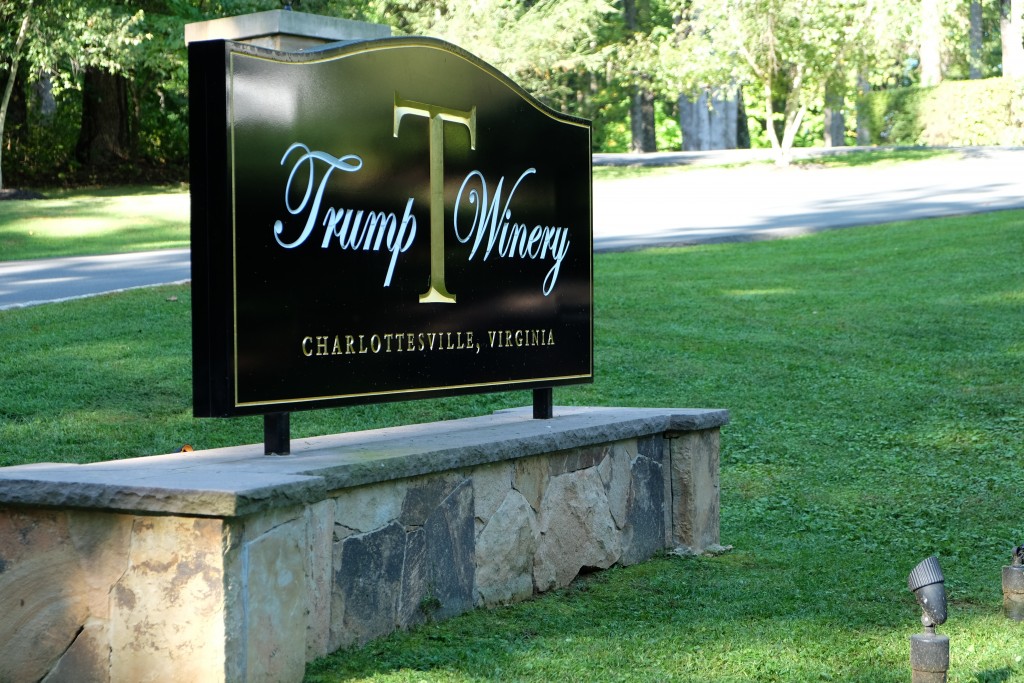
Just a few miles from Monticello, the Trump Winery (which I understand The Donald purchased from the Kluges after their foreclosure) boasts a direct connection to Thomas Jefferson. On the winery’s homepage, there are several quotes from Jefferson. The website makes its proximity to Monticello a selling point.
Young Eric Trump, the son, is all over the website. Several photographs depict him holding a wine glass and standing in an otherwise vacant vineyard. One photo shows the Trump helicopter next to the vineyard. It’s an attractive site.
As is often the case, workers are nowhere to be found. But I have to wonder, who is doing the work at the Trump Winery just out of sight? Of course there are workers — but they’re invisible ones. I’d like to see their faces in pictures. Why not be proud of them?
Could it be possible, given the realities of farm work today, that Trump Winery employs people from Mexico? We know most vineyard workers today are recent immigrants. Since some 85% of farmworkers today are from Mexico, could some of them be there, next to Monticello?
Now, let’s look again what The Donald says:
When Mexico sends its people, they’re not sending their best….They’re sending people that have lots of problems, and they’re bringing those problems with us. They’re bringing drugs. They’re bringing crime. They’re rapists. And some, I assume, are good people.
Given that statement, here’s my main question: are some of Mexico’s “problem” people picking grapes that go into bottles that Trump’s son sells with the family’s name on it? Are they attaching the very labels bearing his name onto bottles I can buy?
_______
By the way, here’s one thing Monticello is doing about its history of slavery: it’s a section of its website devoted to “Slavery at Monticello.” Among other facts, the site displays the original names and many images of the descendants of the enslaved there. Remedial work, but important nonetheless. That’s the Monticello I’m glad to associate with.
Leave a Reply